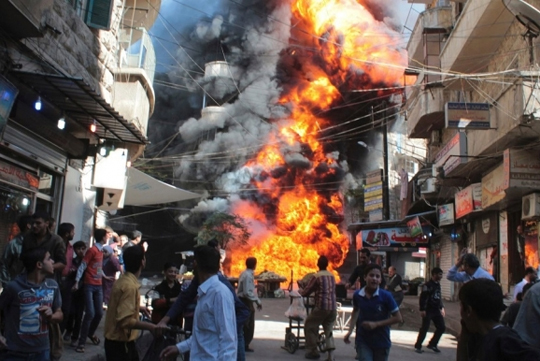New York, Jun 29: A new study reveals why hot, sweltering weather can trigger aggression as new findings also link that theory to changing climate and weather can also affect human behavior.
In this new study known as CLASH (Climate Agression, and Self-control in Humans), scientists are suggesting that hot climates that are combined with lesser variation in seasonal temperatures can produce a "faster life strategy" that triggers less focus on the future and less self control, that are all major contributors to aggression and violence.
According to co-author of the study, Brad Bushman from Ohio State University, this clearly show evidence of a faster life strategy that coincides with hotter climates and even lesser temperature variation, which also means that humans tend to be less strict with time, where there is also less use of birth control by having children earlier and more often.
This new study also reveals how countries with constantly warm spells are "irritated" and people are more likely to be outdoors interacting with other humans, which can lead to more opportunities for conflict. New findings also show that hotter temperatures are not just to blame but climates with lesser seasonal variations can be more conducive for violence.
According to co-author of the study, Maria Rinderu from the Vrije Universiteit, Amsterdam, if there is less variation in temperatures combined with heat, it can bring some measure of consistency in daily living. For example, this would mean that there is less necessity to adapt between large swings from hot and cold weather.
She also adds that people who live in consistently hot countries have a "faster life strategy" where they are more concerned with the present rather than the future, resulting in lesser self control.
In contrast, temperature variations can help people plan and prepare for the next season, which can leave less time for conflict. For example, agriculture, hoarding and preparing for cold winters can shape culture in crucial ways.
Researchers also say that with less temperature variation, people are more free to do whatever they want, since they do not need to prepare food and chop wood for the winter. People who are living in hotter climates are also stressed out with environmental factors such as venomous animals and parasites as well.






Comments
Add new comment